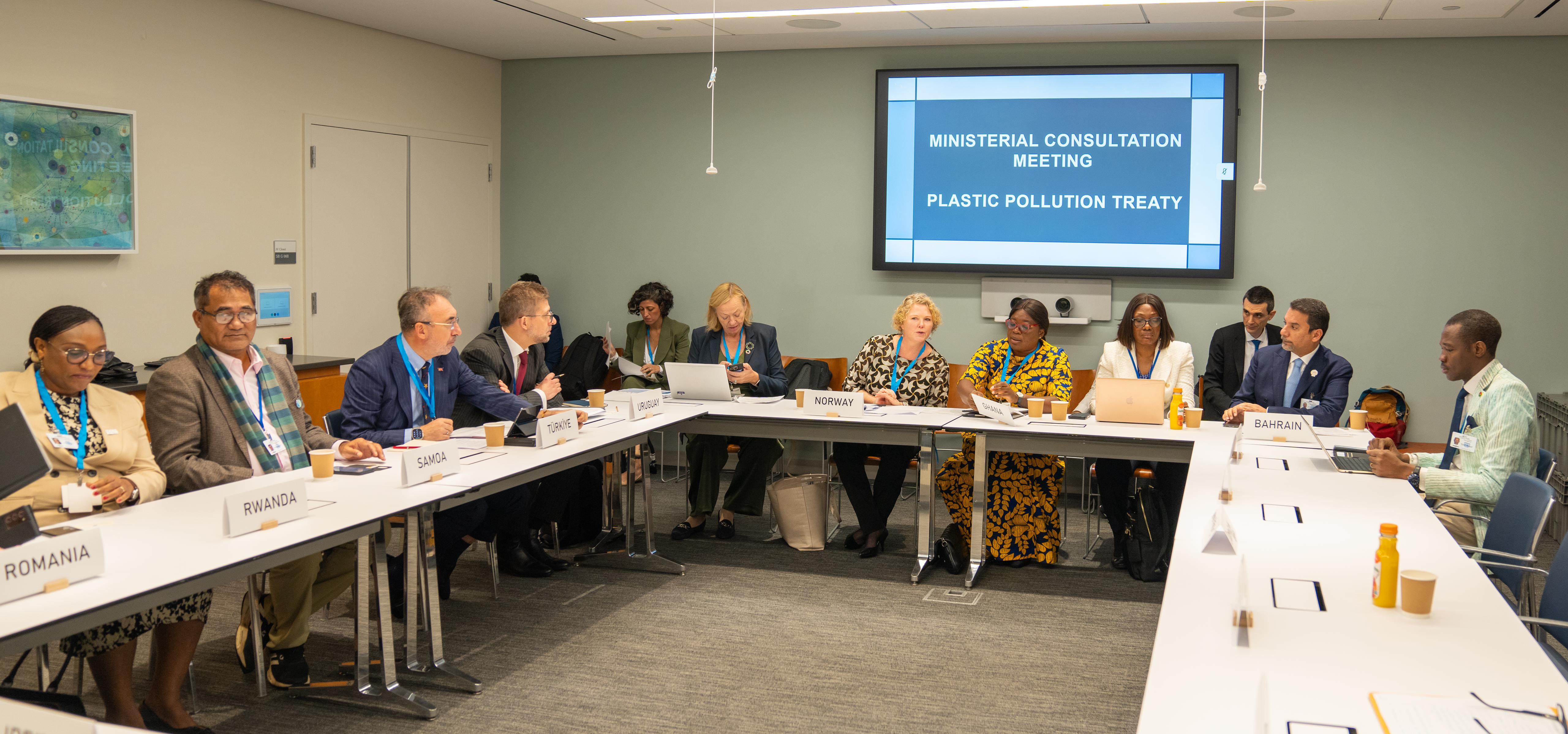Dr. Mohamed bin Mubarak Bin Dainah, Minister of Oil and Environment and Special Envoy for Climate Affairs, took part in a ministerial consultation meeting on the legal framework addressing plastic pollution.
The meeting is organised by Canada and Norway and is held on the sidelines of the 79th United Nations General Assembly.
In his remarks, Dr. Bin Dainah highlighted that plastic pollution largely results from poor management of plastic waste after consumption. He underscored the necessity for the legally binding framework to include provisions that support developing nations in enhancing waste management practices, which will reduce environmental impacts and help these countries meet their commitments.
The minister pointed out that United Nations studies reveal only 9% of plastic waste is recycled, indicating an urgent need for focused research and investment in waste management solutions.
Dr. Bin Dainah called for global cooperation to provide financial resources and transfer technology to build effective waste management systems, promote a circular economy, and increase investment in recycling.
Dr. Bin Dainah noted that calls to impose restrictions on plastic production at the primary and processing stages, without considering economic and social implications, could have adverse effects. These include hindering progress towards sustainable development goals and jeopardising the security of vital material supplies.
He emphasised that the UN Environment Assembly resolution 5/14, which seeks to create a legally binding instrument to address plastic pollution, particularly in marine environments, is designed to safeguard the environment from plastic contamination. He added that it should not be interpreted as a method to hinder industry through restrictions on production or taxation.
The minister said that Bahrain supports global efforts to eliminate plastic pollution based on solid scientific foundations and existing agreements relevant to this issue.
